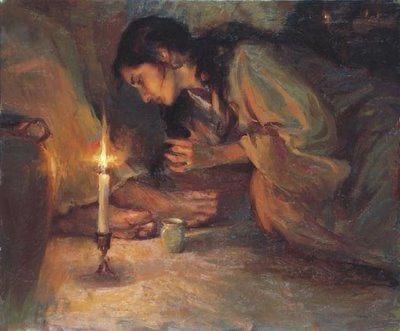
“The poor you always have with you,
but you will not always have me” (John 12: 8)
In the Gospel coming up this Sunday, we come across these words of Jesus. He was responding to criticism by Judas Iscariot of Mary, sister of Martha and Lazarus, who at dinner with Jesus had poured expensive perfume over his feet. John clearly saw this as an act of profound devotion undertaken in the shadow of the cross and as a foreshadowing of his burial. By the following week Mary would indeed be heading with other women to the tomb of their crucified Lord to anoint his dead body.
The Church has struggled with the question raised by Judas. His criticism was that Mary’s action was economically profligate! How many poor people could have been served with the money paid out for the perfumed oil? In the book of Deuteronomy that makes up one of the first five books of the Hebrew Scriptures known as the Pentateuch, we read that “since there will never cease to be some in need on the earth, I therefore command you “Open your hand to the poor and needy neighbor in your land” (Deut 15:11) and the implication is that there needs to be accommodation constantly available out of compassion and mercy.
It is an issue of abundance compared to scarcity. And Jesus offers an answer that acknowledges room for both extravagant devotion without forgetting to maintain a constant concern for the poor. The comparison however is not quite so balanced. In the Gospel of John, we are always being invited to go beyond the obvious we think we see. What does he mean by saying “you will not always have me”? Of course, we know what he means because we do not have Jesus physically with us. We cannot anoint his feet with perfumed oil. We cannot pour it over his head. The women who were prepared to anoint his dead body never got to fulfil their duty. They did not have to for, as the angels announced to them, He was risen! And yes, he became untouchable, but even more approachable.
We may not know what motivated Mary’s extravagance, some have suggested it was gratitude for the raising of her brother from the dead. We do know, however, that over time Christians who began to know the power of the Risen Christ as a true ongoing presence in their lives by the giving of the Holy Spirit were known for their love for one another. Their extravagance never ceased. They sold their homes and collected the proceeds and poured it out like expensive perfume on the widows and orphans whom they met. They experienced the “both/and” at which Jesus hinted that night at dinner. They could show their gratefulness and devotion by giving to the poor!
Soon they would talk about serving Christ in the least among us; and seeing Christ in the dignity of every human being, just as we now do in our baptismal vows which we are preparing to renew this approaching Eastertide.
I invite you to place yourself in Mary and Martha’s home. To be grateful on how it all turned out; and to make your own extravagant act of promising to pay it all forward. In a world obsessed with protection and scarcity, we have been given another perspective. We forgive because we are forgiven; we give because we receive; we love because we are loved.
— Bishop Alan Scarfe

Recent Comments